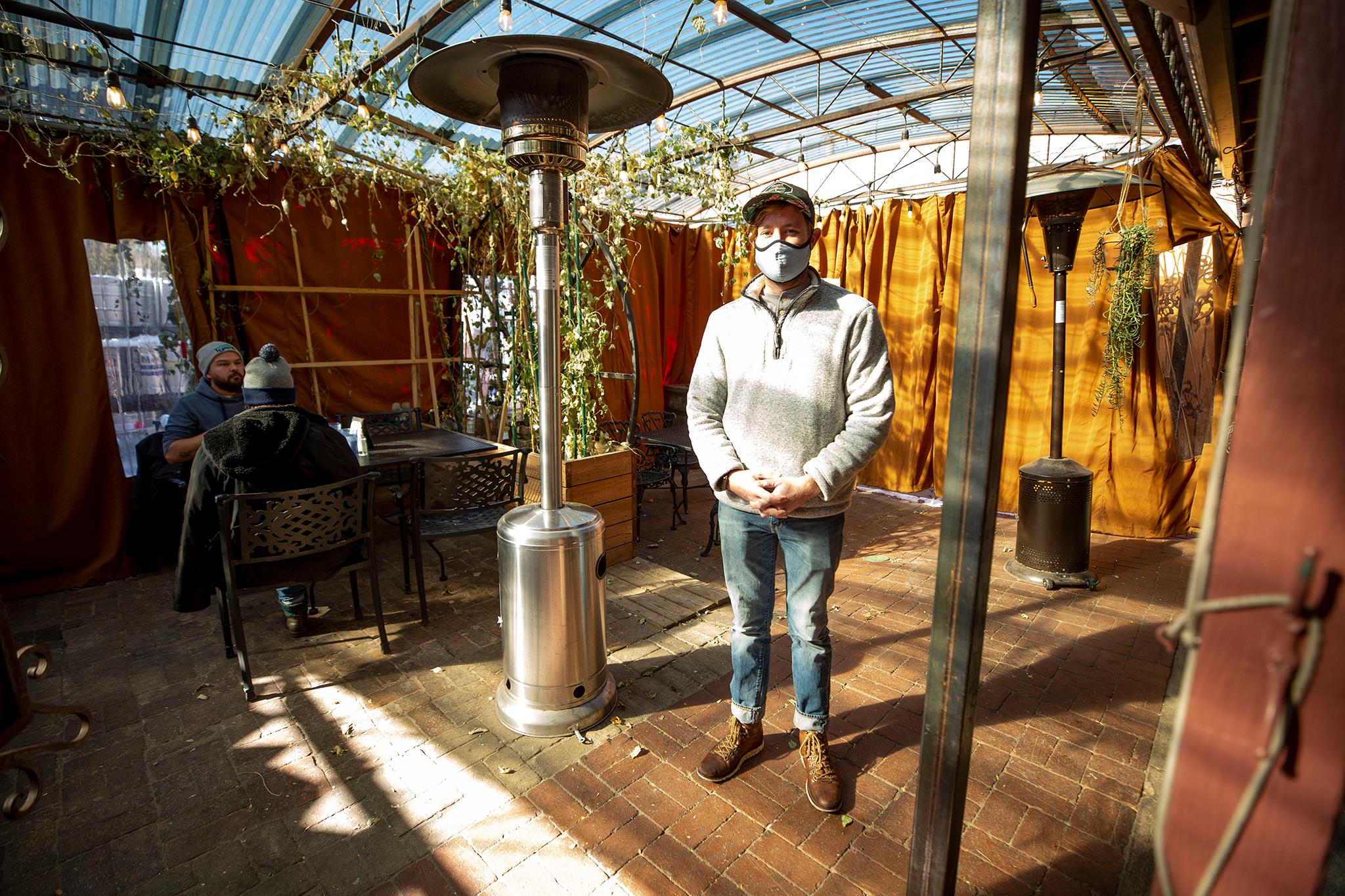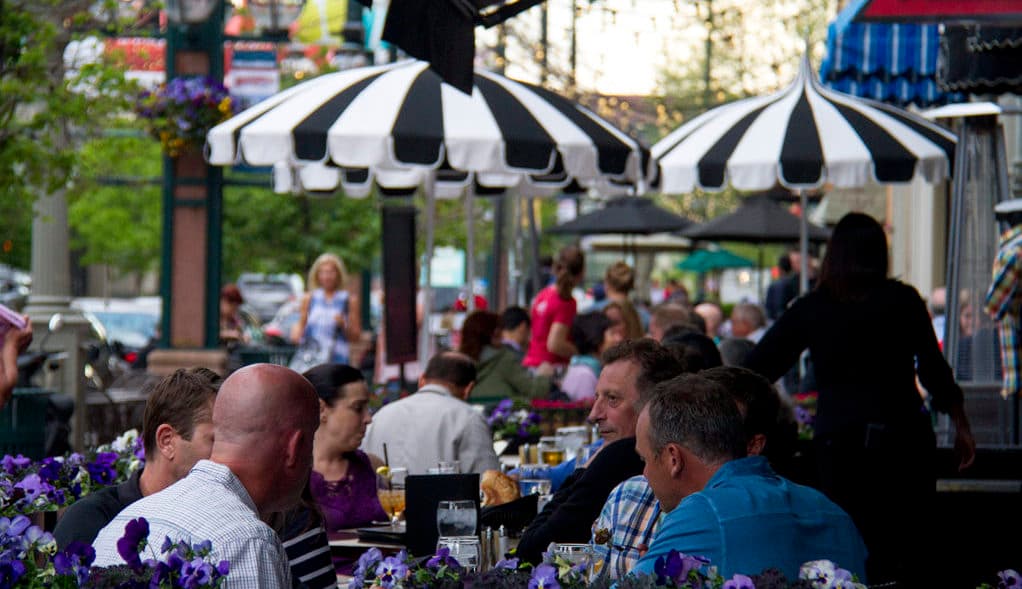Outdoor drinking and dining options may very well become permanent public infrastructure in Denver's near future. Mayor Michael Hancock announced Tuesday that multiple city agencies will work with restaurant owners to support their outdoor dining options through new permitting and zoning processes.
"Extended patios have provided a crucial lifeline to restaurants through the COVID-19 pandemic, and Denver restaurants overwhelmingly support the program," Mollie Steinemann with the Colorado Restaurant Association explained.
The original temporary outdoor dining program received hundreds of applications just days after implementation in May 2020. The program was extended in April so business owners could renew their temporary outdoor dining licenses all the way through October 2022. As of today, 373 restaurants have used the policy to offer outdoor dining options, and at least 111 will continue through the winter months.
A Colorado Restaurant Association survey found 68 percent of Denver restaurants benefitted from the program. Of the restaurants that took part in the patio program, more than half of their summer revenue came from outdoor dining, and that revenue, in turn, directly created or saved around 30 percent of their staff jobs, they reported.
"If it wasn't for the program, I don't think we would actually be in business right now," Simeran Baidwan, owner of Denver's Little India restaurants, said during the press conference. "Because of that expansion, we were able to keep our employees." The restaurant did not furlough employees, many of whom Baidwan said are immigrants with families to support.

Perceptions of the public right-of-way, and public spaces in general, have changed drastically during the pandemic.
Restaurants have been creative and adaptive in utilizing formerly public spaces -- like the grassy strip between the road and sidewalk, unused parking spaces, or even the street itself -- to continue serving customers. However, not every establishment's outdoor options will be approved as permanent add-ons.
"With traffic levels returning back to normal, we won't be able to have every dining area that has expanded seating into the public right of way to continue. I want to say that clearly," Hancock said. "What we're going to do is to go by a case-by-case, restaurant-by-restaurant, bar-by-bar assessment of what is possible."
The work will be split up between the myriad public agencies that govern businesses and public spaces. For example, the Department of Transportation and Infrastructure will evaluate the safety of the outdoor dining options, which include things like snow and ice with winter just around the corner, while Community Planning and Development will launch the public process of creating new zoning laws to apply to these temporary spaces.
And while the city will continue to reserve the right to revoke licenses in the name of things like public safety, these new assessments will allow restaurants to keep serving in outdoor spaces for the foreseeable future. The new October 2022 deadline gives the city and its various agencies some time to thoroughly review the applications, although the timeline to complete the project is not concrete.
It's also a collaborative process, and certain city agencies are working with innate limitations. Changing city zoning takes months and involves public hearings before the Denver Planning Board and City Council. These zoning changes likely won't be permanent by October 2022, but Community Planning and Development says it will continue offering guidance and working with each individual business in the meantime.
While nothing has been decided yet, Mayor Hancock did note that the clamor for certain streets to remain pedestrian-only has grown during the pandemic, especially around Larimer Square, the Pearl Street District and Glenarm Street.













